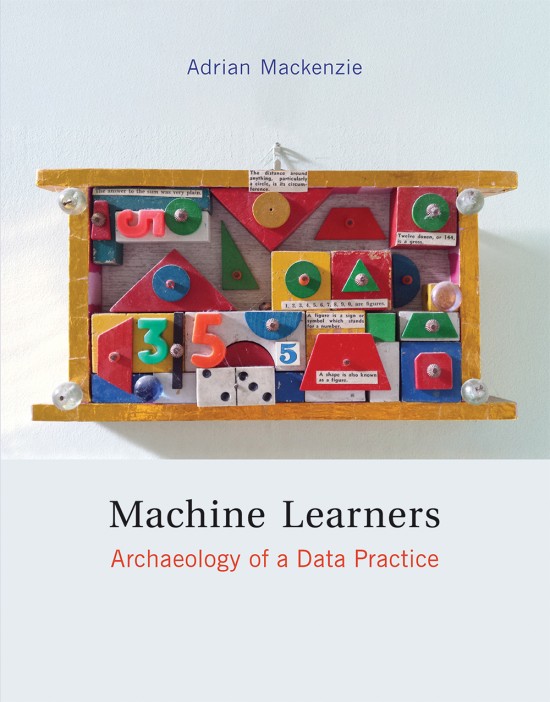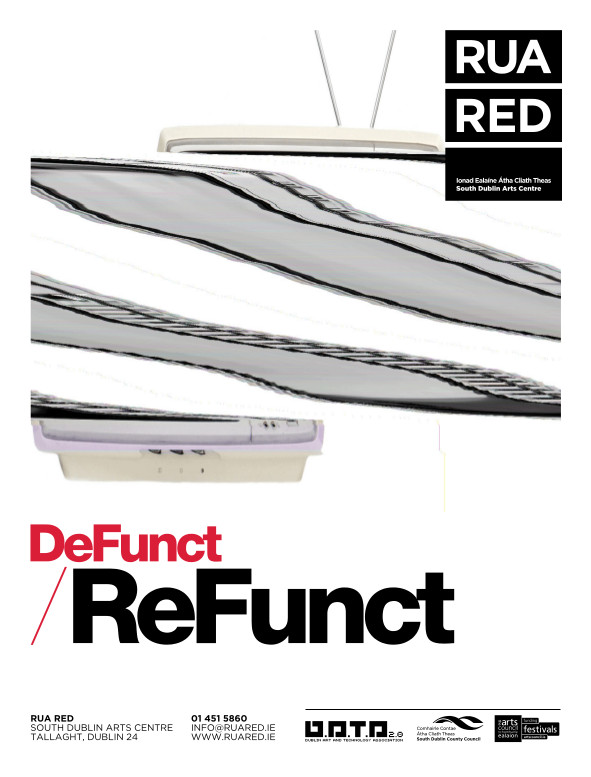Adrian Mackenzie: Machine Learners: Archaeology of a Data Practice (2017)
Filed under book | Tags: · abstraction, algorithm, archaeology, artificial intelligence, code, data, diagram, error, information science, information theory, knowledge, machine learning, mathematics, neural networks, programming, theory

“If machine learning transforms the nature of knowledge, does it also transform the practice of critical thought?
Machine learning—programming computers to learn from data—has spread across scientific disciplines, media, entertainment, and government. Medical research, autonomous vehicles, credit transaction processing, computer gaming, recommendation systems, finance, surveillance, and robotics use machine learning. Machine learning devices (sometimes understood as scientific models, sometimes as operational algorithms) anchor the field of data science. They have also become mundane mechanisms deeply embedded in a variety of systems and gadgets. In contexts from the everyday to the esoteric, machine learning is said to transform the nature of knowledge. In this book, Adrian Mackenzie investigates whether machine learning also transforms the practice of critical thinking.
Mackenzie focuses on machine learners—either humans and machines or human-machine relations—situated among settings, data, and devices. The settings range from fMRI to Facebook; the data anything from cat images to DNA sequences; the devices include neural networks, support vector machines, and decision trees. He examines specific learning algorithms—writing code and writing about code—and develops an archaeology of operations that, following Foucault, views machine learning as a form of knowledge production and a strategy of power. Exploring layers of abstraction, data infrastructures, coding practices, diagrams, mathematical formalisms, and the social organization of machine learning, Mackenzie traces the mostly invisible architecture of one of the central zones of contemporary technological cultures.
Mackenzie’s account of machine learning locates places in which a sense of agency can take root. His archaeology of the operational formation of machine learning does not unearth the footprint of a strategic monolith but reveals the local tributaries of force that feed into the generalization and plurality of the field.”
Publisher MIT Press, November 2017
ISBN 9780262036825, 0262036827
272 pages
via A.B.
Review: Graham White (Computational Culture, 2021)
PDF (removed on 2018-8-20 upon request from publisher)
Draft and code samples on GIT
Clément Chéroux: Fautographie. Petite histoire de l’erreur photographique (2003) [French]
Filed under book | Tags: · avant-garde, error, history of photography, photography

Si le terme de Fautographie semble remonter à Man Ray, la pratique, elle, sous ses multiples formes, est bien plus ancienne — aussi ancienne que la photographie elle-même. Ratures et ratages, bonnes ou mauvaises surprises, détournements, lapsus et pataquès ont jalonné son histoire, fécondé des avant-gardes, inspiré les concepts les plus sérieux ou les expériences les plus fantaisistes, suscité des débats esthétiques épineux mais passionnants. Car l’accident photographique est aussi délicat à saisir qu’à éviter ou à provoquer (sauf à considérer, avec Ben, qu’« il n’y a pas de photos ratées », ou au contraire qu’elles le sont toutes). À la fois avec sérieux, précision et légèreté, avec une érudition qui puise aussi volontiers dans l’histoire des images que dans la technique des manuels d’amateurs ou les théories de la modernité, Clément Chéroux propose une visite guidée, cohérente, réjouissante et abondamment illustrée de cette petite mais inépuisable maison des erreurs. Chacun, Jourdain qui s’ignore et fait de la photo ratée sans le savoir, pour sûr, s’y sentira un peu chez soi…
Publisher Yellow Now, Crisnée, 2003
ISBN 2873401737
183 pages
Review (Sylvie Aubenas, Etudes Photographiques)
PDF (60 MB, updated on 2015-1-21)
Comment (0)Benjamin Gaulon (ed.): DeFunct/ReFunct, catalogue (2011)
Filed under catalogue | Tags: · art, circuit bending, error, glitch, hardware hacking, media art, physical computing, programming, recycling, technology

Mobile phones, communication devices, game consoles and PCs have short lifespans. How can we rethink, reuse and reinvent our e-waste? Hardware hacking, programming and physical computing are becoming part of artistic scope. There is a growing interest among artists and designers to know more about these domains of creation.
Catalogue for the DeFunct/ReFunct exhibition held in Rua Red, Dublin, as part of the Glitch Festival.
With texts by Benjamin Gaulon, Garnet Hertz & Jussi Parikka, Rosa Menkman, Alessandro Ludovico, Eduardo Navas, Phillip Stearns.
Featured artists: LoVid (Tali Hinkis and Kyle Lapidus), Gijs Gieskes, Recyclism (Benjamin Gaulon), MNK (Karl Klomp), TokTek (Tom Vebrugen), Rosa Menkman
Publisher RUA RED, Dublin, Ireland
ISBN 9780957077713
32 pages

